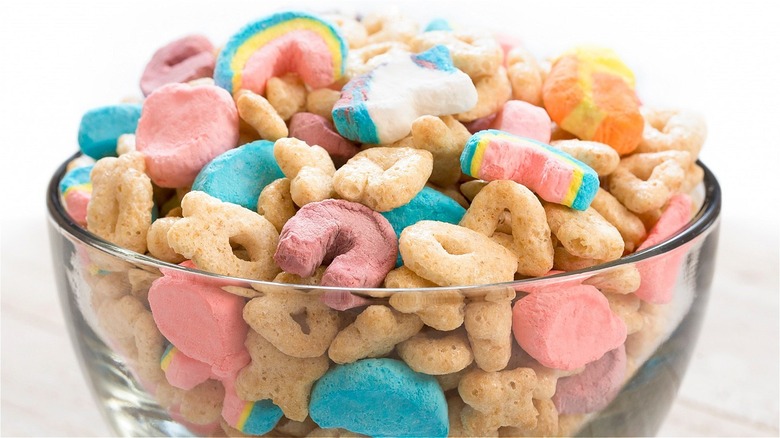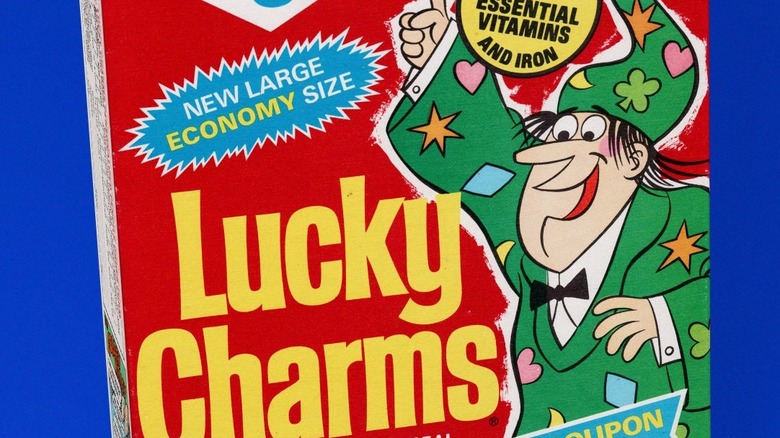Why The Lucky Charms Mascot Was Replaced On Boxes Of Cereal In 1975
Prior to the advent of the internet and streaming services, Saturday morning cartoons were once a staple of many a child's upbringing. During these time slots, animated commercials pitching sugary cereals to impressionable young minds were ubiquitous. Cereal companies often use anthropomorphic mascots to appeal to children, from Tony the Tiger to the Trix rabbit. Another iconic breakfast mascot, Lucky the Leprechaun, similarly adorns boxes of General Mills Lucky Charms cereal. Although it may be hard to imagine now, Lucky the Leprechaun, who was first introduced to the public in 1964, wasn't always gracing the front of that red box. According to Atlas Obscura, he was briefly replaced in 1975.
Why boot the leprechaun? The problem was that some believed Lucky came off as a bit aloof and unapproachable, preventing children from acquiring his "magically delicious" Lucky Charms. During their search for a replacement, the members of the General Mills marketing department brought in children's focus groups to test new mascots. One of those figures included a pudgy, affable character named Waldo the Wizard.
As per PopIcon, Waldo was clad in a classic wizard's cap and green outerwear. He also uttered the nonsense catchphrase "ibbledebibbledelicious." Kids responded well to Waldo, who temporarily stepped in for Lucky in New England markets.
Where's Waldo?
However, much like a box of cereal that's left open and exposed to the elements, Waldo didn't last long before his act became stale. He was pulled from boxes in New England after less than a year. Lucky's smiling visage returned in his place, where it has since remained. Ultimately, General Mills had invested too much money in advertising with Lucky the Leprechaun and couldn't part ways with the guy. Alan Snedeker, who created advertising for Lucky Charms, brightened Lucky's image and rebranded him as a more jovial sprite (via Atlas Obscura).
Over the years some have taken issue with sugary breakfast cereals, such as Lucky Charms and their advertising gimmicks. Critics allege that they unfairly target children. In a study on brand mascot influence on children's diets, Wiley Obesity Reviews highlighted the issue, saying that reducing kids' exposure to such marketing tactics could be an important tool in fighting obesity.
In spring 2020, the Germany-based international grocery store chain Lidl even went so far as to remove cartoon characters from its brand of cereals altogether, hoping that it would lead to healthier breakfast tables for kids.

